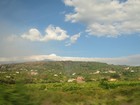
IMG_2077 - Giardini means citrus grove or garden. Naxos in Greece was the home of the first Greeks to come to Sicily.
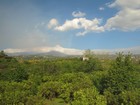
IMG_2078 - Mt Etna provided the rich volcanic soil for this coastal plane.
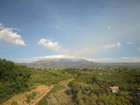
IMG_2082 - The many bumps on Mt Etna were produced by lava from the many flank eruptions.
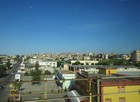
IMG_2083 - Catania, a dynamic, modern, industrial and IT city. Buried by Mt Etna 17 times since 730 BC, it has many layers
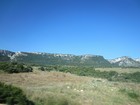
IMG_2088 - Limestone cliffs near Priolo Gargallo. There are still active quarries there.
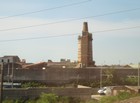
IMG_2089 - A lime kiln for heating limestone to make quicklime (calcium oxide), used in making mortar.
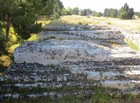
IMG_2090 - Neapolis Archaeological Park, Syracuse, or "Siracusa". The 24m x 196m Altar to Zeus.
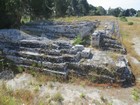
IMG_2091 - Using it, 450 sacrificed oxen would honour Zeus and provide a ceremonial feast for 160,000 people.

IMG_2094 - The Neapolis Greek theatre was carved out of this solid limestone hill in the 5th century BC.
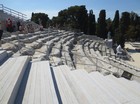
IMG_2095 - With extra, constructed, upper parts, it could seat 15 to 20 thousand people.

IMG_2096 - Greek actors, "hypocritos", spoke roles. The "chorus", mostly dancers, performed in the "orchestra" in front.
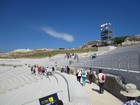
IMG_2098 - The theater was 150 m high and the shape gave excellent acoustics. The Romans modified it for gladiators.